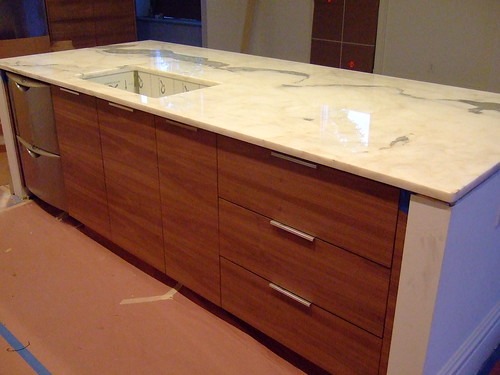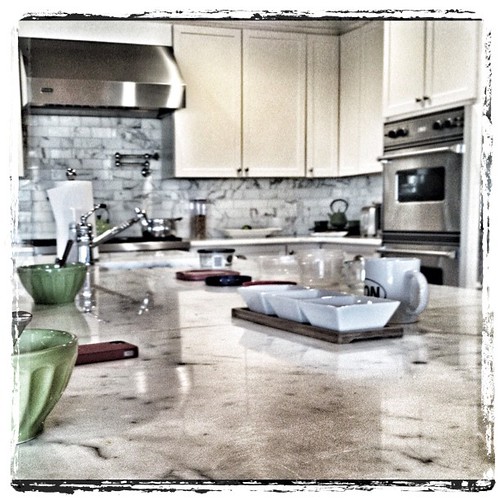There are plenty of folk out there that think marble countertops are marble countertops…end of story. Sadly though it isn’t quite as simple as this as in reality, the difference from one product to the next can be quite enormous. If you decide to used a professional cleaning service like Proclean domestic cleaning Glasgow, they should take care of everything for you. Alternatively you may want to do the job yourself. Take home the very best products on the market from leading granite suppliers and you have yourself a lifelong investment that’s largely impervious to damage. At the other end of the scale, bargain-basement marble work-surfaces scratch at the first touch, crack at the first knock and crumble if you so much as sneeze in their general direction.
Right in the middle though you have yourself something of a happy medium – an extremely durable and reliable work-surface, but at the same time one that needs the proper care and attention. Look after a mid-range marble surface properly and it will continue looking after you for life, regardless of how often you use it.
Marble counters need to be cleaned in a certain way.

This is precisely why it’s never a good idea to go reaching into the kitchen cupboards and summarily assaulting your marble countertops with any number of harsh and corrosive chemicals. You could easily make things a thousand times worse without even realising it, which is a shame considering how easy it is to clean marble surfaces safely and effectively.
Here’s a look at a few top tips for keeping marble surfaces clean and stain free, without risking any kind of damage in the first place:
Warm Water
Unless you’re using the kind of bargain-basement marble that soaks up water like a sponge, you should consider warm water your best friend. If you tackle all spills and marks as soon as you notice them, chances are you will need nothing more than a damp cloth to get rid of them. Even in the case of dried stains it is usually possible to work them away with nothing more than water. You should however first consider how hard the water is in your area, as the use of hard water for cleaning marble of any kind can lead to unsightly mineral deposits that don’t come off without a fight! If you live in a hard water area, try using a water softener.
Household Vinegar
Moving onto a tip NOT to follow under any circumstances – vinegar is a big no-no. There are so many blogs and guides all over the web advising the use of vinegar as a safe and natural alternative to cleaning products for use on marble. In reality though, the acid within the vinegar has the potential to eat away at the surface of the marble and completely ruin its lustre. And to the same extent, this also means that any acidic spills – lemon, wine, vinegar – that come into contact with your marble should be cleaned up immediately.
Make sure you follow these tips.

Commercial Cleaners
There’s nothing wrong with going out and taking home a commercial cleaner – just as long as it’s a cleaner designed specifically for marble. Most will advise you to choose a standard multi-purpose cleaner that states it can also be used on marble, but if you’re looking to keep the finish of your surfaces as perfect as possible, look for something that’s designed specifically for marble. It’s never worth taking the chance on something you’re not sure of as once you’ve marred the surface of the marble, there’s no going back.
Problem Polishes
Over time, it’s inevitable that the shiny and glossy surface of your marble will begin to dull and fade. When it does, there are plenty of products you can buy specifically for the purpose of returning its lustre, though with cheaper or lower-quality marble you will have to accept a brand-new look is impossible to hold onto, should you intend to actually use it. One note of importance is the one of making sure you never use oil polish of any kind on a marble surface, as this will do little other than further damage the colour. Likewise, soft waxes aren’t good for the finish of the marble either, so steer clear and buy something appropriate.
Sealing Surfaces
And finally, if you are using a marble countertop that is on the porous side, you’ll need to make sure you treat it every now and again to reduce its absorption. The very best marble and granite work-surfaces (like from Roma Marble) are practically 100% repellent to water and stains, but lower-quality products are anything but. You can try using a special stone sealer to reduce the porosity of the surface and this should make it considerably easier to clean from then on in.
Image credits: ann-dabney
{ 0 comments… add one now }